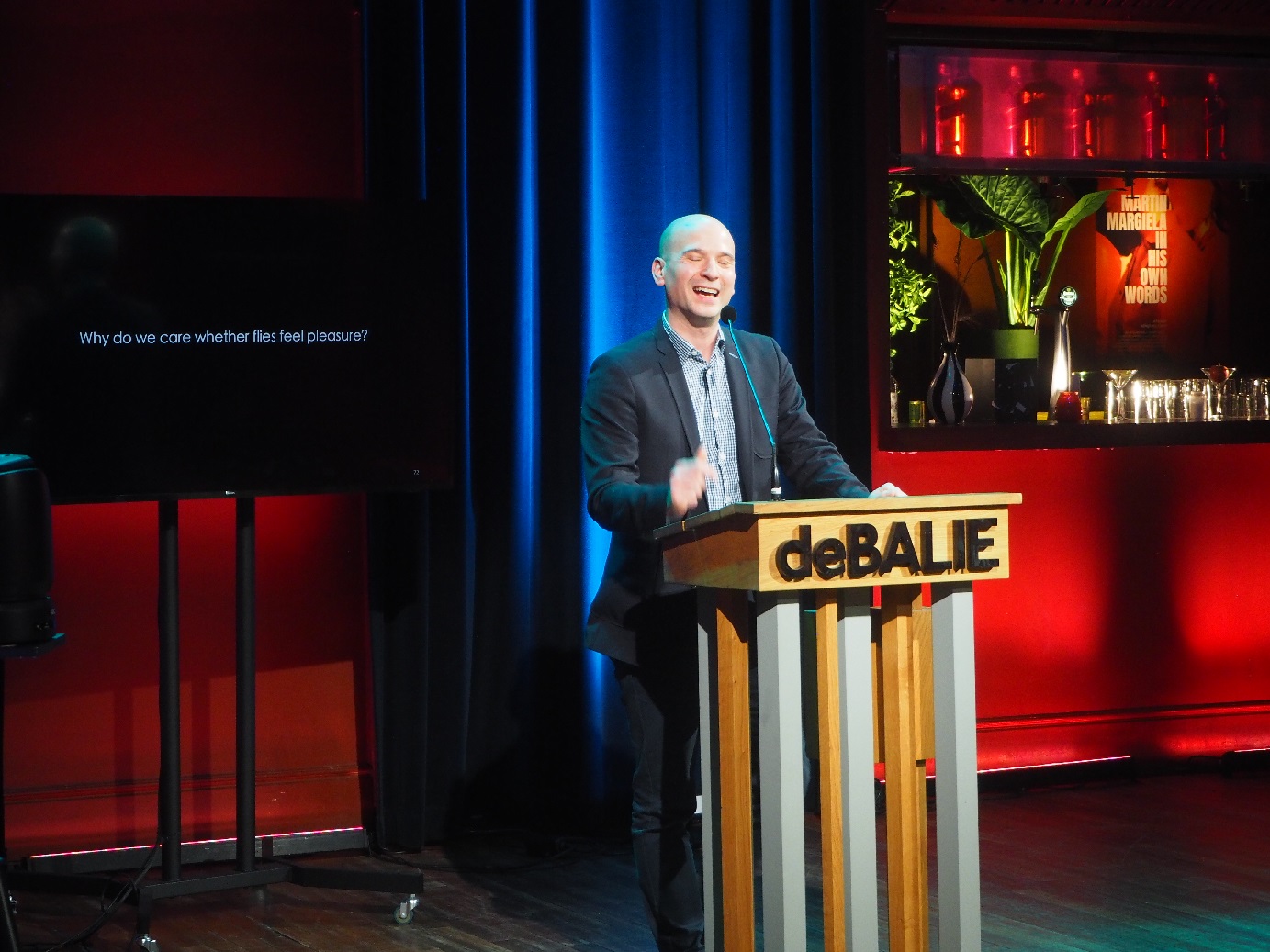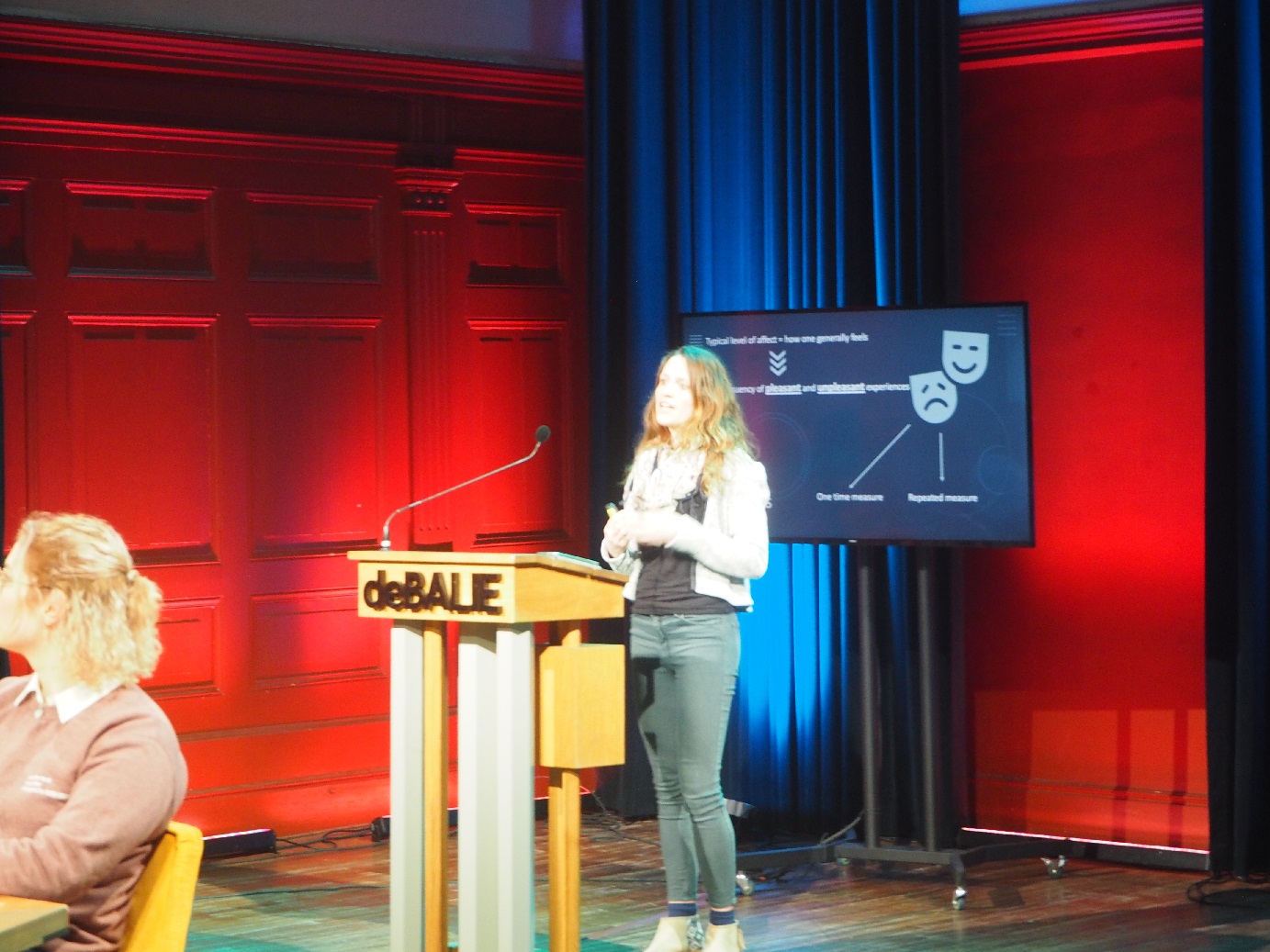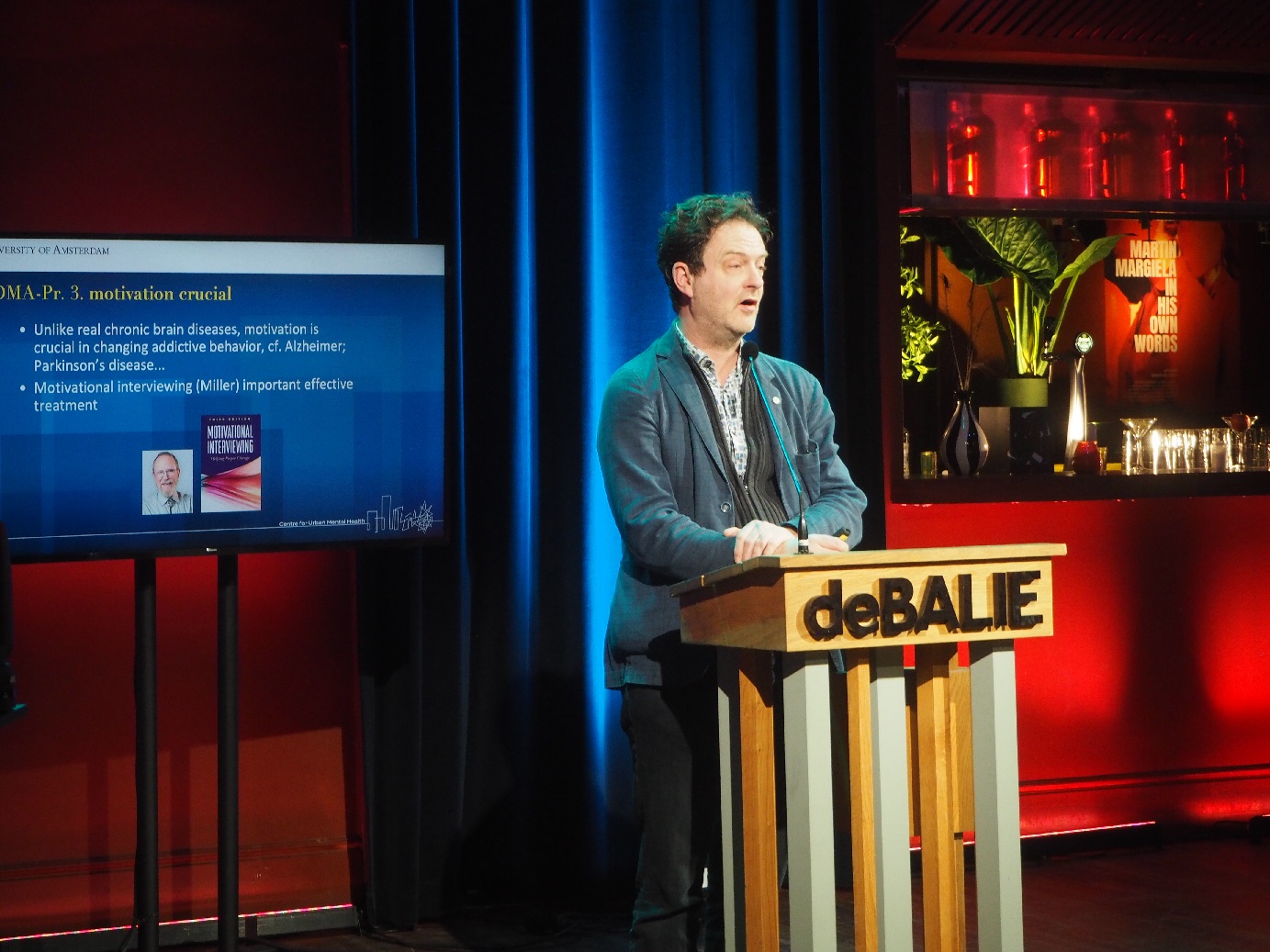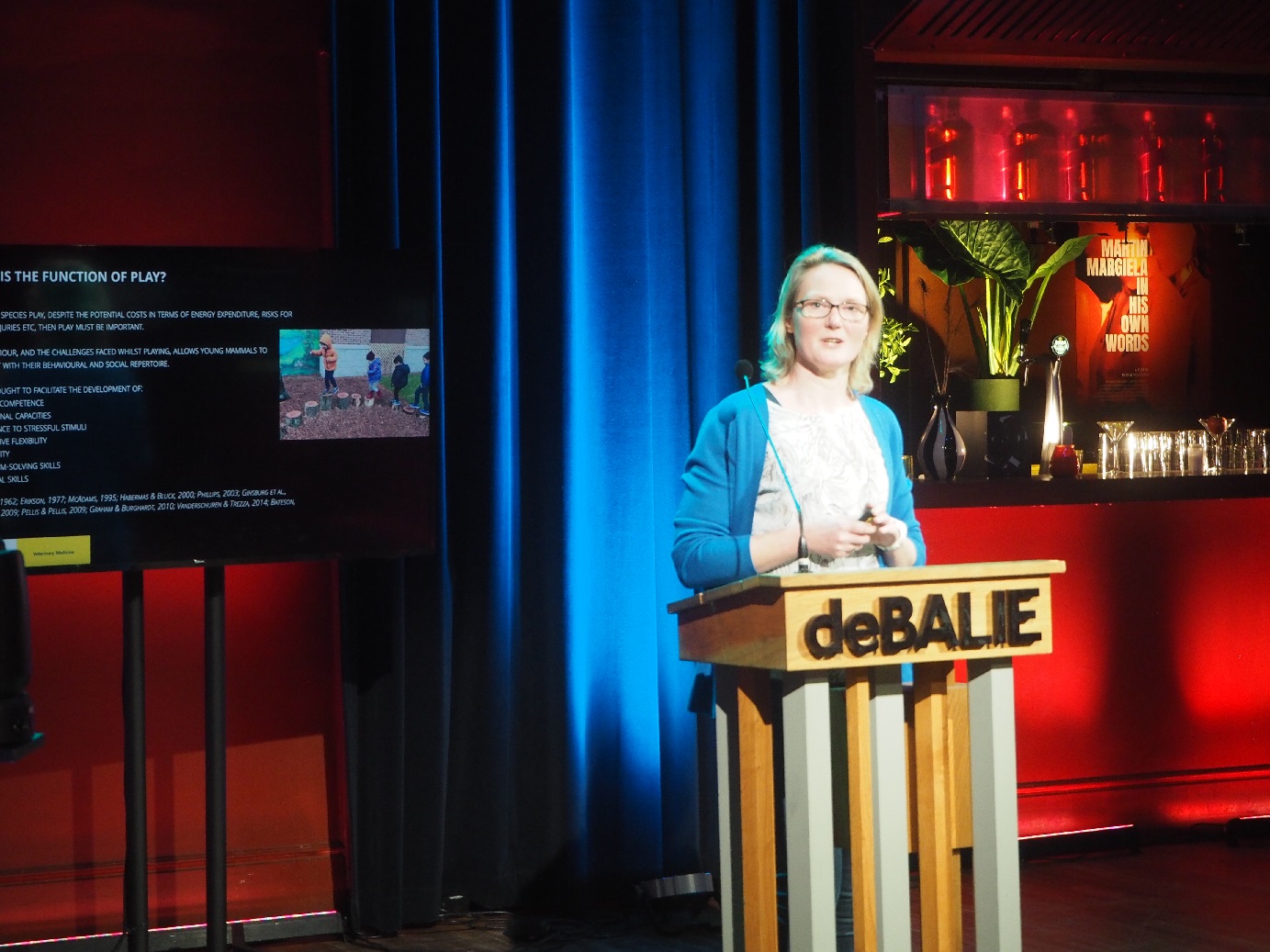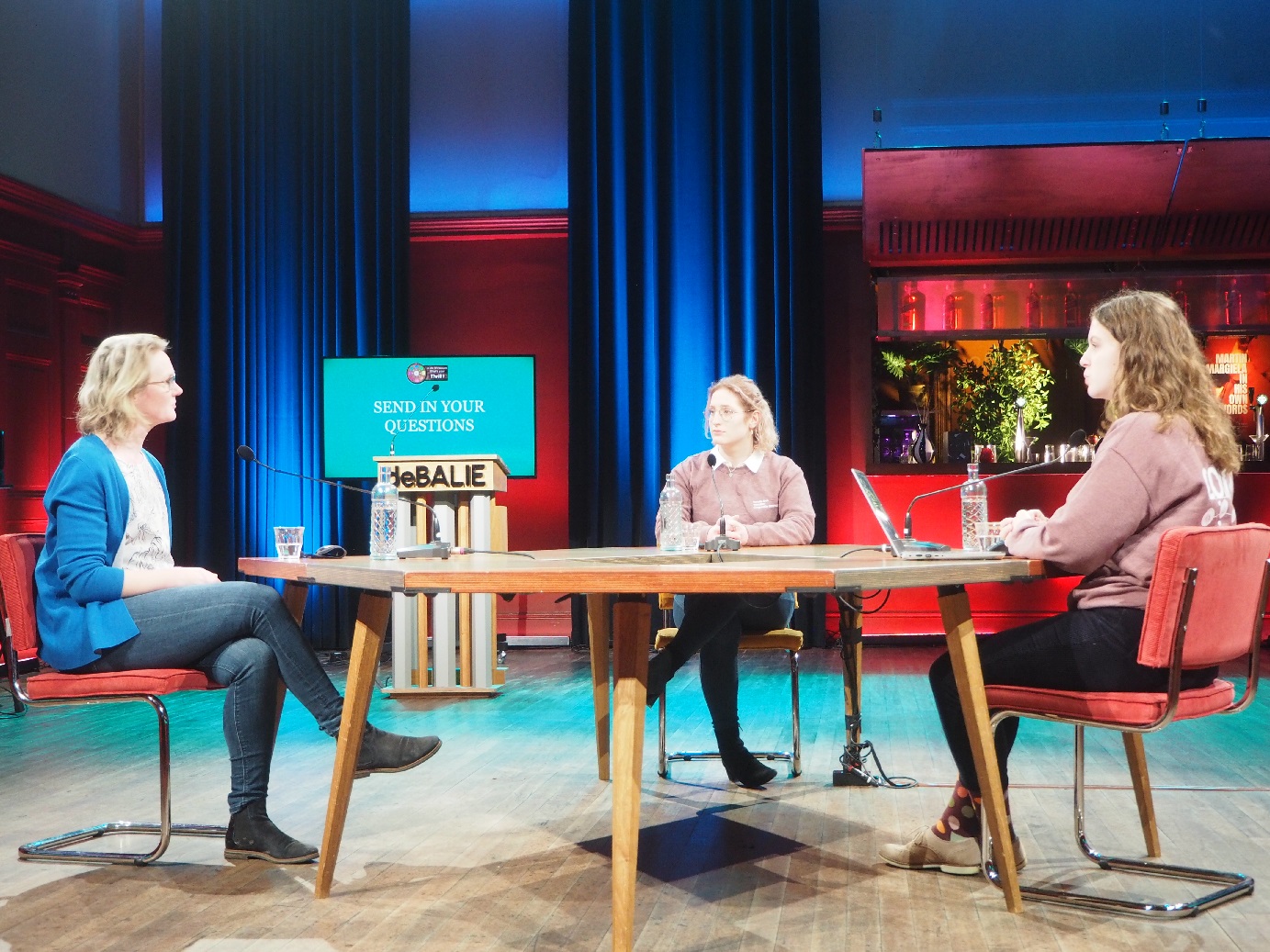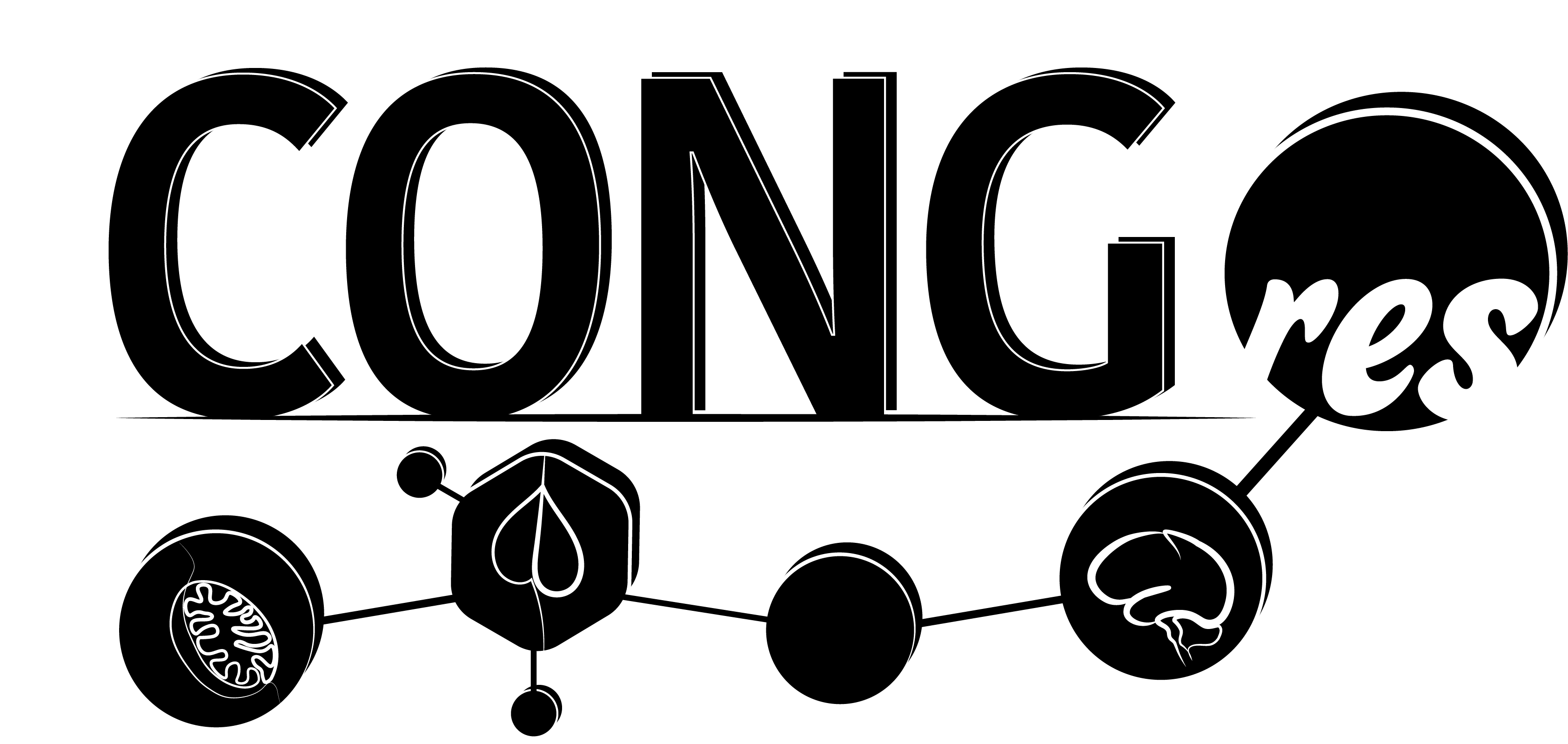We all have things we like, music we enjoy, games that we play, guilty pleasures in the bedroom. But why do they make us happy? What does “pleasure” even mean? And when does pleasure become obsession? That’s the questions we asked ourselves last year at the Congres Committee of study association C.O.N.G.O. We looked far and wide and found professors and professionals that could answer these questions for us and elaborate on the subjects of play, sex, drugs, and music. This has all culminated on the 11th of March, to create 2021’s CONGres: A life of pleasure, what’s your thrill?
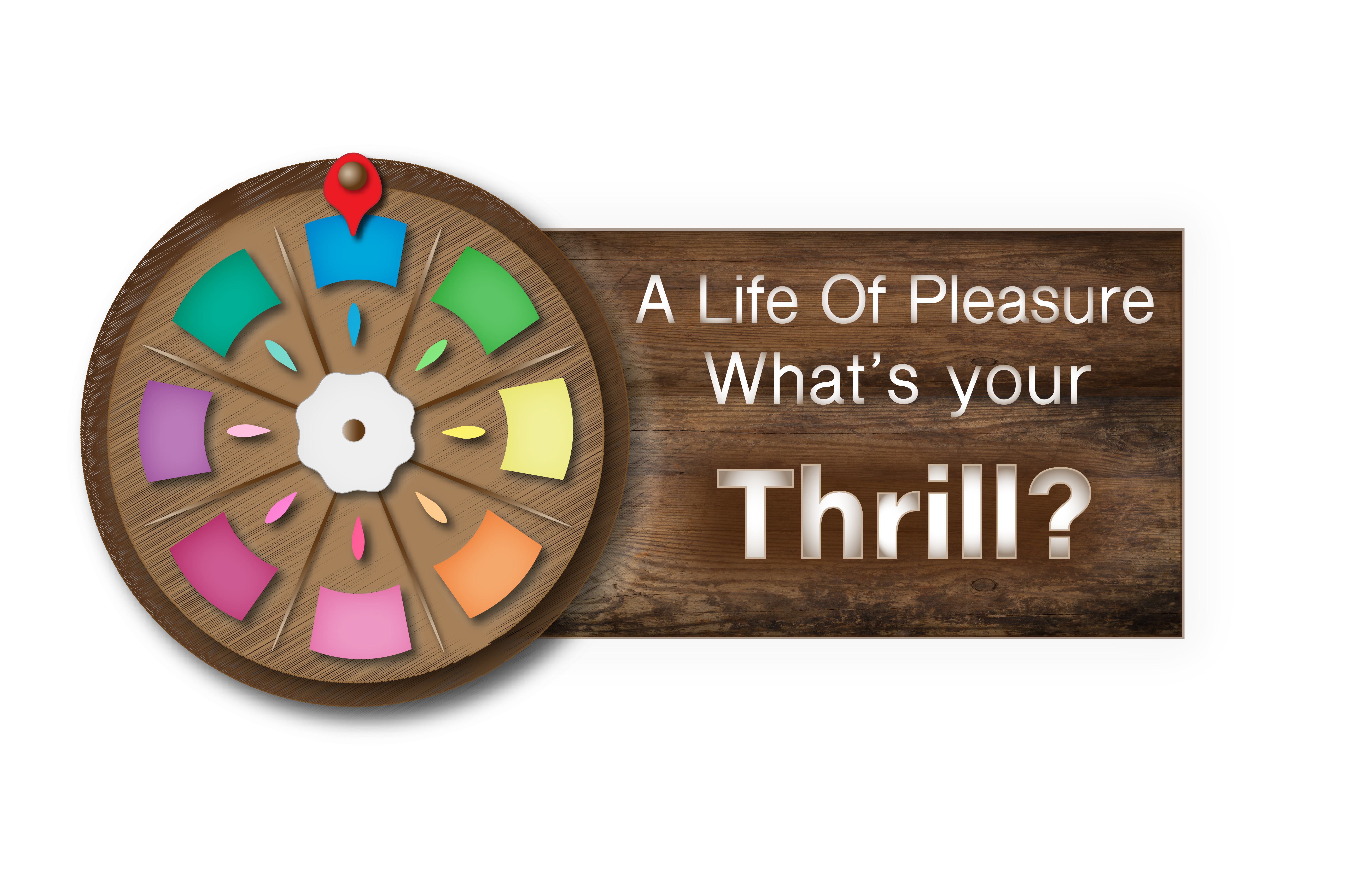
2021 Was a little bit different than normal however. With the pandemic keeping us in its grip, we found another way to give our speakers a stage. Thus, the CONGres was streamed live from De Balie in Amsterdam! Every speaker had the stage for 20 minutes, to present their subject in a short talk, after which there was time for questions and discussion. In between the talks, there was time to unwind and experience the subject in a different way.
Main Speakers
Dr. Laura E. Webb

What is happiness and how do we measure it?
‘How happy am I?’ This is a question most of us have asked ourselves, and answering this question is no simple task. Assessing happiness, or satisfaction with life, in humans who can verbally report their feelings is tricky enough, so imagine having to do this in animals without verbal communication. Understanding and assessing animal happiness is important to ensure that we can provide the best possible lives to animals we choose to keep and raise for our benefit. Mammals share many physiological systems and brain structures, which means that we can make use of human happiness research when developing and validating animal happiness indicators. In her talk, dr Webb introduced us to the concepts of human and animal happiness and explained the link to emotions. She then proposed some ways in which we may in the future be able to assess animal happiness, based on findings in humans.
Dr. Webb is a researcher at the Animal Production Systems group of Wageningen University – a chair group that investigates the economic, ecological and social sustainability of animal farming. Dr Webb’s work focuses on assessing the affective experiences, or emotions and moods, of farm animals, in particular dairy cows and calves. To this end, dr. Webb and her colleagues investigate behavioral, cognitive and physiological markers of affect. In the long run, she aims to be able to record affective events in individual farm animals using sensor technology and intelligent algorithms.
Prof. dr. Jean-Cristophe Billeter
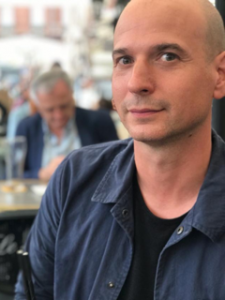
Is sex fun for flies?
Every summer, our kitchens are invaded by fruit flies. For most they are a nuisance, but for biologists like Prof. dr. Billeter they are an amazing species in which to investigate the mechanistic and evolutionary principles that underlie behaviour, including sex. In his lecture, examples from his own research and that of his colleagues explained why flies have sex, how they know how and with whom to do it, and whether they derive pleasure from it. Prof. dr. Billeter explained what these findings suggest about the general importance of sex and pleasure from a biological perspective.
For the last 20 years Prof. dr. Billeter has been investigating how and why behaviours develop. This hard question led him to search for the simplest systems and most powerful methods through which to look for answers. Early on he became convinced that genetics offer the most precise tools to dissect behaviour, and that fruit flies are the most powerful system in which to deploy these tools. After training in several labs around the world, Prof dr. Billeter has started his own research group at the University of Groningen 10 years ago, where they currently study the neurogenetics of sexual and social behaviours.
Parallel Speakers
Prof. dr. Reinout Wiers
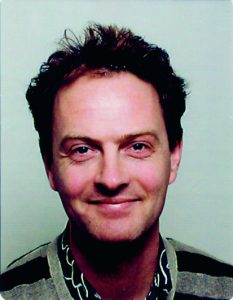
Addiction
Addictive behaviors typically start pleasurably, enhancing social interactions in adolescent and young adult life. After a peak in this age, most reduce use later in adulthood, but some continue, beyond pleasure and develop substance use problems and a small group a severe addiction. Biomedical sciences have defined addiction as a chronic relapsing brain disease, sometimes with an attribution of loss of free will. However, epidemiological data show that most people who meet criteria for substance use disorder successfully quit, often without help. Most people who drink at harmful levels can reduce their drinking and associated health risks with simple interventions such as voluntary abstinence (Dry January). And in more severely addicted alcohol-dependent patients, cognitive training can help to regain control, as we showed in a series of studies.
Prof. Dr. Reinout Wiers is Professor of Developmental Psychopathology at the University of Amsterdam (UvA). He was previously associated with Maastricht University and as endowed professor on addiction in youth at Radboud University Nijmegen.In Amsterdam, prof. dr. Wiers is head of the Addiction Development and Psychopathology (ADAPT) research group. Wiers is internationally renowned for his research into measuring and influencing cognitive processes in addiction, for which he received N.W.O. vidi and vici grants, among others. He has published more than 300 scientific articles in this field, as well as some popular scientific books. Wiers is co-director of the UvA research priority area “urban mental health”.
Prof. dr. Marc Leman
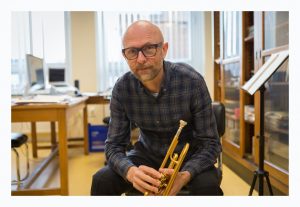
A life of pleasure – with music
Music can be understood as a pro-social (slightly) addictive drug which people often use to regulate their emotions. Some people believe that music is a tool for healing. The key element in this attribution of power to music is pleasure. Thanks to the pleasure of interacting with music, music can become a strong motivator for action, which is useful for physical rehabilitation and re-training programs. What is the deeper cause of musical pleasure? And can music become a tool in the hands of scientists and therapists, to heal people? First an example of a biofeedback system with music, which works with pleasure (via punishment and reward) was presented. The system can steer recreative runners with high impact (causing them knee injuries) to adopt a running style with lower impact (up to an effect size of 30%). Other examples of music studies with relevance to clinical and medical contexts are briefly mentioned. Based on these examples, a theoretical framework based on the dynamic regulation of cognitive-emotional-motoric processes in association with neurobiological markers was introduced. This framework allows us to understand why music has those strong pro-social, slightly addictive, motivating properties based on pleasure as a driving factor.
Prof. dr. Marc Leman is “Methusalem” professor in musicology at Ghent University, with > 400 articles and several books in the field of embodied music cognition. He is the founder of the art and science interaction lab (ASIL, at the Krook in Ghent), which is a lively meeting place for researchers working on music, using motion caption, virtual reality, neuroscience and AI-methods. He is laureate of the Belgian five-yearly FWO Excellence Award “Ernest-John Solvay” for Humanities (2015).
Dr. Heidi M.B. Lesscher

Playing for resilience
Play is considered essential for the healthy social, emotional, and cognitive development of individuals. The benefits of play are thought to arise from the opportunities play offer to experiment with one’s behavioural and social repertoire, and the challenges one faces whilst playing. A lot of what we know today about play behaviour is derived from rodent studies. For example, rats that were isolated during the stage of their lives in which they play most, essentially depriving them of social play behaviour, develop reduced and dysfunctional social behaviour, enhanced anxiety-like behaviour and impaired cognitive control. In humans, reduced risky/outdoor play has been associated with lower fitness, self-esteem, pro-social behaviour and academic achievements. A particular group that may be hampered in their play behaviour, are children with a chronic or life-threatening disease. Being hospitalized, experiencing pain, fatigue or social isolation and the ‘other-than-normal’ treatment of diseased children may cause physical and social isolation and likely compromise participation in social play. Course of life research has revealed the impact of childhood chronic disease on young adults, achieving significantly fewer developmental milestones, or at older age than their peers, with significant consequences for their functioning later in life. Because play behaviour is known to be important for the brain and behavioural development, it is likely that the developmental problems emerging in this group of children are related to their restrictions in play at young age. This lecture highlighted the multidisciplinary approach we take within the hub Healthy Play Better Coping at Utrecht University to study the role of play in the healthy development of mammals, from rats to children.
Dr. Lesscher is an assistant professor at Utrecht University and a neurobiologist. Her research focuses on rewards systems, addiction and play behaviour. She is one of the coordinating members of the hub Healthy Play Better Coping and she is involved in interdisciplinary research into the role of playing in brain development and behaviour in rodents and in children.
Dr. Elise Wuyts

The biology of BDSM
In recent years, attention has shifted from the idea of BDSM (bondage and discipline, dominance and submission, sadism and masochism) as a pathological and tabooed niche practice towards viewing BDSM as a healthy form of intimacy. BDSM has been shown to be quite prevalent in society, with a large-scale survey study conducted by our group indicating that 46.8% of the population had engaged in a BDSM-related activity at least once. It has even found its way into mainstream media (i.e. Fifty Shades of Grey book and film trilogy).
Although more people are becoming aware of what it is and what it entails, much about the underlying psychological and especially biological processes driving these interests and fantasies have yet to be revealed. Are certain baseline biological processes related to an interest in BDSM? Do BDSM interactions trigger biological changes that reinforce these interests? What changes might we expect during a BDSM-themed interaction or “play” and how do these changes explain what BDSM practitioners report?
Because literature on the biology of BDSM is limited as of yet, it is important to place these results in a broader context. This lecture explored the different biological processes which have been shown to play a part in the BDSM experience.
Specific focus was given to a study conducted by our own group. In this research, each of the dominant and submissive counterparts were observed during a BDSM interaction. Blood samples and pain thresholds were collected on different points in time before and after this interaction. The results of this study was presented and situated within other existing research on the biology of BDSM.
Dr. Elise Wuyts is a Belgian psychiatrist in training at the University of Antwerp. She is currently obtaining her doctoral degree on the biology of BDSM under the supervision of Prof. Dr. Manuel Morrens. She has an additional interest in the field of forensic psychiatry.
Photo’s
